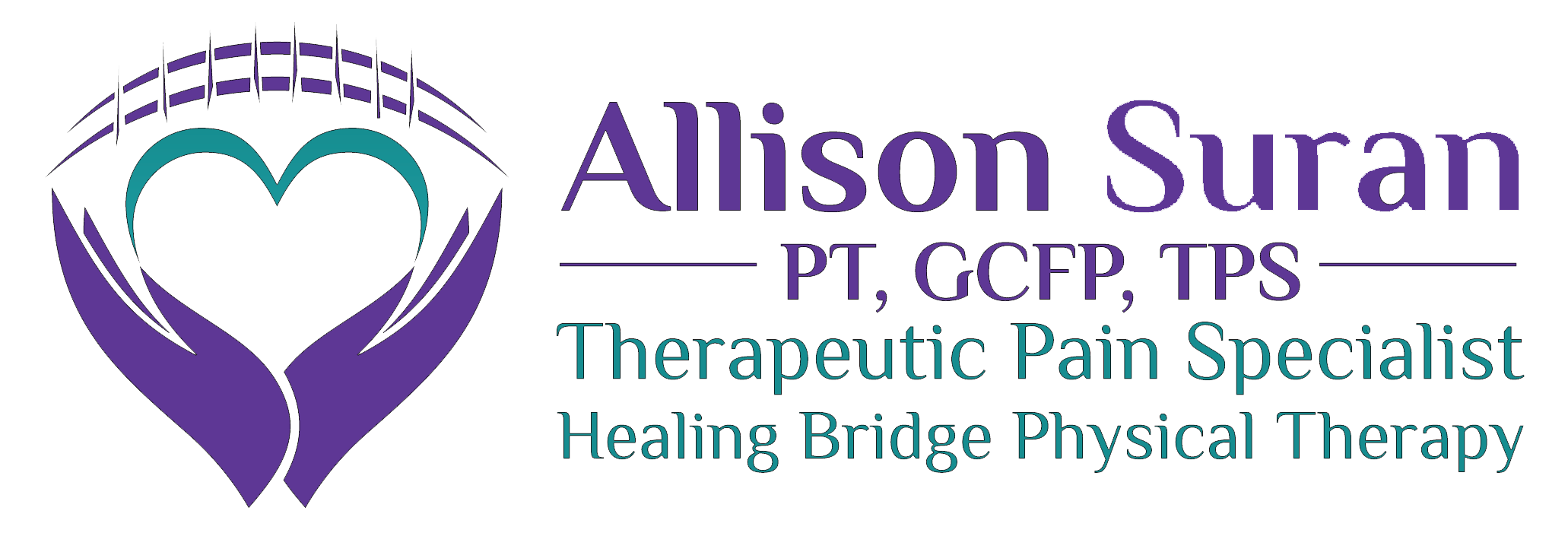Why Am I Not A Chronic Pain Patient?
April, 2015
As I thought about writing my journey I realized there is another aspect of my story; Why do I not consider myself in chronic pain. As most of you know, I specialize in treating and teaching people about chronic, persistent pain. In my definition, developed over years of passionate interest and research, I would not just define it as “Pain that persists longer than 6-12 months” as the medical community does.
Another definition I found included, “Pain that lasts beyond the term of an injury or painful stimulus.” This may be more accurate, as I still have a painful stimulus which is at the root cause of my pain experience. What is currently different from my chronic pain patients, is that their pain has continued even though there may not be a defined stimulus. OR, if there is a “something” shown by xrays and MRI’s, such as degenerative/osteoarthritis, bulging discs, stenosis, pinched nerves, facet joint inflammation, etc, their pain experiences is often greater and causes more suffering than that stimulus would indicate. This is because the level of pain experienced is determined by the brain. The brain then determines how much this pain threatens ones quality of life. What follows is an unfolding of physiological changes in the brain and the nervous system which can create higher levels of pain than the injury or damage would warrant.
There is also a significant difference between pain and suffering. I suspect many of the patients who come into my office saying their pain is at a 9-10/10 and are walking and barely wincing, are really suffering at a 10/10 level because of the physical and emotional challenges of their pain experience. Yes, I have pain, usually ranging from a 2-4/10, and occasionally higher. However, I know what it is, what has caused it, and use it as research for what I can learn and how can I help my patients. This is very different than feeling overwhelmed by it.
In my case, I believe that my Feldenkrais and Physical Therapy background have allowed me to stay open-mindedly inquisitive and objective about my experience. I have never experienced the fear that pain can elicits. My spiritual beliefs and my training have allowed me to stay curious about the unfolding of this adventure. In some ways, it’s a genuine gift to be a medical practitioner on the receiving end of medicine. I get to be a patient and have the perspective and knowledge of a practitioner.
This is rarely the case for the average person who experiences pain, unanswered questions and in-effective treatments. The story for many who are truly suffering from on-going persistent pain, is that when they entered the complexities of the medical system they became overwhelmed and often ignored when standard treatments didn’t work, which results in increased fear and anxiety. Ultimately, this can begin and perpetuate the brain-pain cycle that leads to so much suffering for so many.
There are many times when I’ve asked a patient, “Can you find the gift in this experience?” Mind you, I only do this when someone is centered and supported enough to think outside of the pain box. If life really is a journey, then in moments of clarity, we have the opportunity to accept it and see what the blessings are, or reject it, and contribute to the fear, stress, and pain that ensues. It is also possible to shift our attention from the non-blessed pain and limitations (because for many, that can feel like an impossible leap), yet focus on all of the many other blessings of life.
As I prepare for Thursday’s surgery, I feel blessed for the many prayers and well-wishes that I have received. If prayer truly does work (and the research says it does!), then I have no reason to fear the next steps in my journey.
